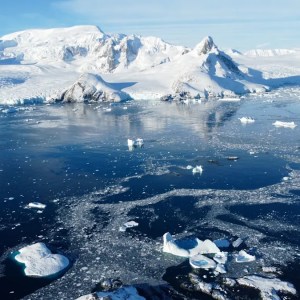A leading scientist, Louise Sime, from the British Antarctic Survey, warns that we may have crossed a dangerous climate threshold in West Antarctica. This area is crucial because it contains enough ice to raise global sea levels by several feet. Disturbingly, recent data indicates that it could be melting much faster than we thought.
Sime, who has over two decades of experience studying Antarctic ice cores, expressed her struggle to fully grasp the potential impact of rising sea levels. Ice cores act like time capsules, revealing alarming trends about our planet’s climate history.
Her research suggests that if global warming continues, the melting of Antarctic ice may accelerate significantly in the coming decades. While it’s unlikely that West Antarctica will lose all its ice in just a few decades, the process could unfold over hundreds or even thousands of years. However, initiating this process could rapidly increase sea levels.
Why should we care about melting ice in Antarctica? It’s not just an issue for distant lands. Coastal communities face real threats. Rising sea levels can worsen flooding, especially during storms, and even a modest rise could displace millions of people. This not only affects infrastructure but also freshwater sources and farmland.
Furthermore, changes in ice melt can disrupt ocean circulation, which regulates global temperatures. This can lead to extreme weather, affecting agriculture, grocery prices, and even public health.
While the situation seems dire, there is still time to take action. Experts argue that reducing carbon emissions could significantly slow down these trends. Investing in clean energy, updating building codes, and protecting natural carbon sinks like forests and wetlands are crucial steps.
Sime emphasizes the importance of immediate action. “If we stop emitting carbon tomorrow, we might halt further declines in Arctic sea ice,” she explains. Every small action counts. Engaging in clean transit options or reducing food waste helps not just the environment but also our pocketbooks.
Moreover, moving towards solar energy can enhance resilience during extreme weather. By embracing solar panels, we can prepare our homes for potential outages while also contributing positively to the climate.
In these challenging times, it’s essential to stay informed about critical climate issues and make eco-friendly choices in our daily lives. Scientists and experts stress that collective action can lead to impactful results.
For further insights on climate issues, you can explore resources like the [IPCC Reports](https://www.ipcc.ch) or engage with your community to foster more sustainable practices.
Source link
British Antarctic Survey, Antarctica, West Antarctica, global sea levels, Louise Sime, Antarctic ice, the Guardian


